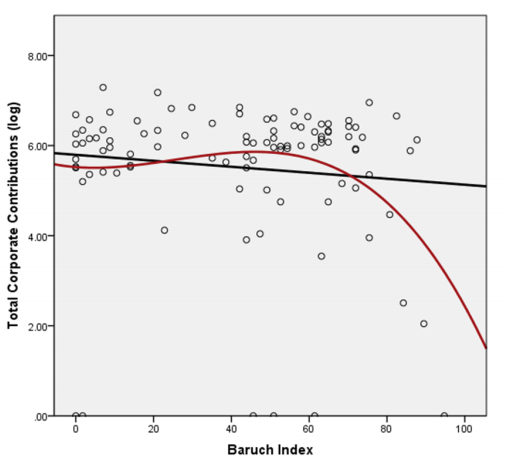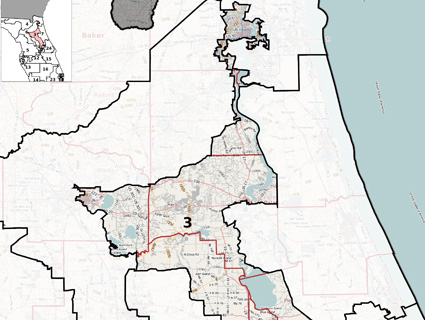The rise of dark-money political groups has made it much harder to tell which big companies are throwing money at elections. Often, all we know is what corporations voluntarily disclose—a big reason why transparency is becoming one of the most important aspects of corporate citizenship. With that idea in mind, the Robert Zicklin Center for Corporate Integrity at Baruch College has ranked Fortune 100 companies based on how well they disclose their political activities. The results may surprise you. Highly transparent companies include hard-knuckled lobbying powerhouses such as Pfizer and Goldman Sachs. Highly opaque ones: Corporate do-gooders such as Berkshire Hathaway, Nike, and Google (though the authors hadn’t seen this Google page).
If you’re wondering what to make of this, the study found some fascinating trends. At the low end of corporate political engagement, companies tend to disclose more as they become more politically active. But as companies go from moderate to heavy involvement in politics, the trend reverses and politically active companies become increasingly opaque. Here’s what this looks like on a graph, where the Baruch Index measures transparency (100=most transparent).
 Robert Zicklin Center for Corporate Integrity
Robert Zicklin Center for Corporate Integrity
Okay, the graph isn’t too transparent either. But here’s what I think is going on: Companies that aren’t involved in politics can seem opaque because they have nothing to disclose. Those with moderate political engagement disclose more on average because they want to let shareholders know that they’re fighting for their interests. But those engaged in major political battles know that their heavy spending could tarnish their brands, so they find ways to hide what they’re doing. In other words, political transparency comes with its own cost/benefit curve, which is basically what you see above.
















